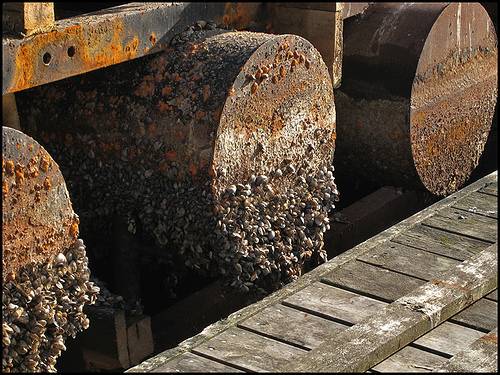A dense carpet of zebra mussels covering rocks, boats and pretty much everything else has become normal in the Great Lakes. The mussels seem like they won’t take no for an answer, but now they might have to.

Zebra mussels are an invasive species in the Great Lakes that often cause problems by clogging pipes. Photo: StarbuckGuy (flickr)
BioBullets, a product invented by two University of Cambridge professors, is undergoing testing in London, England for its ability to kill zebra mussels without harming humans or other creatures. The “bullets” are tiny pellets made of salt-based toxins covered with fat, and kill any zebra mussels that ingest them.
David Aldridge, one of the product’s inventors and co-founders of BioBullets Ltd., insists that the bullets are an effective, environmentally-friendly way of battling mussels that clog pipes and limit the amount of water that can be pumped in or out of lakes. Pellets are flushed through the pipes to clear out the zebra mussels lodged inside.
